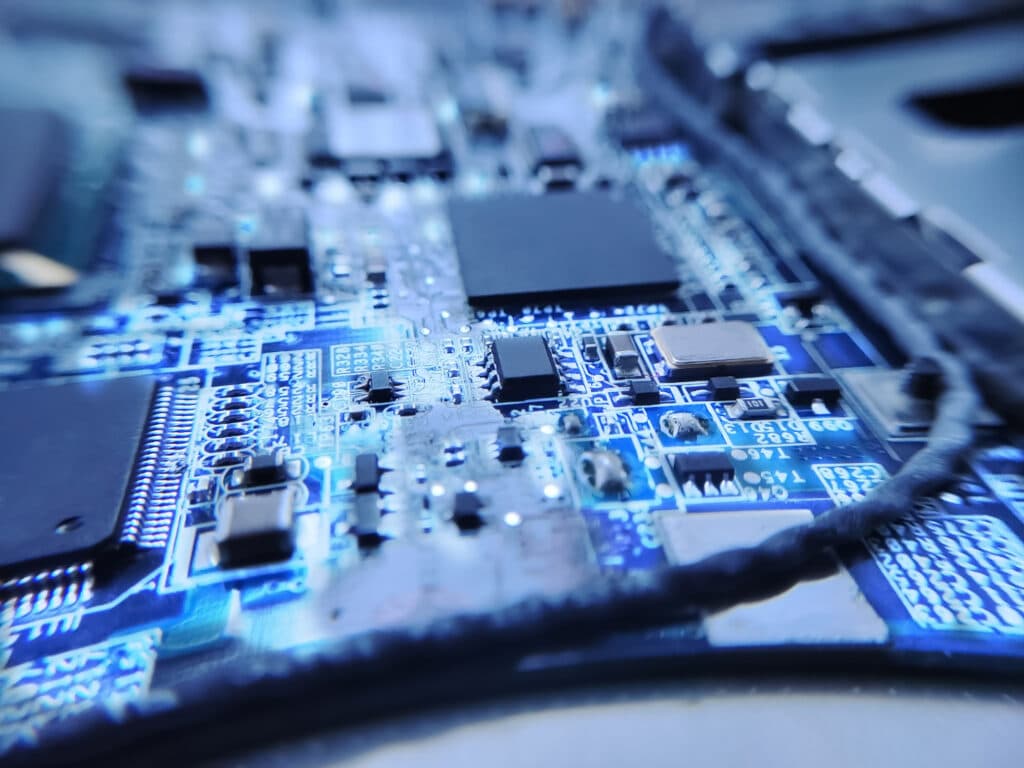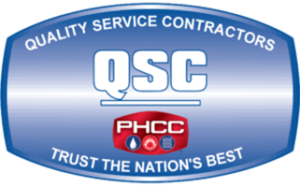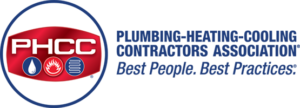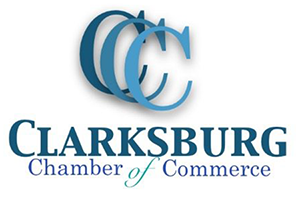Nanotechnology is revolutionizing plumbing by making systems smarter, more efficient, and even self-cleaning. Key innovations include:
- Self-Cleaning Pipes: These pipes use nanoparticles to break down grime and prevent clogs, reducing the need for maintenance.
- Antimicrobial Coatings: Nanotechnology-infused coatings inhibit bacterial growth, ensuring cleaner, safer water.
- Advanced Leak Detection: Sensors with nanotechnology detect even the smallest leaks, preventing costly damage.
- Enhanced Durability: Nanoparticle-enhanced materials make pipes more resistant to corrosion and wear, extending their lifespan.
These advancements lead to more reliable, cost-effective, and sustainable plumbing systems.
Plumbing is something we often take for granted—until something goes wrong. But what if your plumbing system could be smarter, more efficient, and even self-cleaning? Nanotechnology is stepping in to make that a reality.
This cutting-edge technology, once reserved for high-tech labs, is now revolutionizing the way we think about our pipes and water systems. Let’s explore how these tiny innovations are making a big impact in the world of plumbing.
What is Nanotechnology?
Plumbing is a crucial part of our daily lives, quietly working behind the scenes to ensure we have access to clean water and that waste is efficiently carried away.
But as our homes and lives become more advanced, so too must our plumbing systems. Enter nanotechnology—a game-changing innovation that’s set to revolutionize how we think about plumbing.
It involves manipulating materials at a scale so small that we’re talking about particles a thousand times smaller than the width of a human hair!
These tiny particles, known as nanoparticles, have unique properties that allow them to perform tasks that would be impossible for larger materials. In plumbing, nanotechnology can lead to innovations like self-cleaning pipes, antimicrobial coatings, and advanced leak detection systems.

Basics of Nanotechnology
What are Nanoparticles?
To truly understand how nanotechnology is transforming modern systems, we first need to explore the concept of nanoparticles.
These are incredibly tiny particles, so small that they are measured in nanometers—literally one-billionth of a meter! Because of their minute size, nanoparticles exhibit unique properties, such as enhanced strength or the ability to resist bacteria.
These characteristics make them ideal for various applications, including those in water management and infrastructure.
How Nanotechnology Works
Nanotechnology involves manipulating matter at the molecular or atomic level. Scientists can engineer these nanoparticles to carry out specific tasks, such as breaking down grime within pipes or eliminating harmful bacteria.
This allows materials used in water systems and related infrastructure to become more efficient, durable, and long-lasting, improving overall system performance and reliability.
Common Applications of Nanotechnology
Nanotechnology isn’t just a futuristic idea; it’s already integrated into many everyday products. From the sunscreen you use to shield your skin from UV rays to the stain-resistant fabrics in your home, nanotechnology is making a significant impact.
Now, this technology is being applied to water systems, offering innovative solutions like self-cleaning pipes, antimicrobial coatings, and advanced leak detection systems.
These applications are just the beginning, paving the way for more cutting-edge advancements in how we manage and maintain our home environments.
Innovations in Plumbing with Nanotechnology
Self-Cleaning Pipes
Self-cleaning pipes represent one of the most revolutionary advancements in home water systems. These pipes are designed to automatically break down and eliminate grime, scale, and other build-ups that can lead to clogs and reduced water flow.
The secret lies in the integration of nanoparticles, which react to contaminants at a molecular level, breaking them down before they can accumulate.
This ongoing cleaning process means that the pipes remain clear and efficient without the need for harsh chemicals or manual intervention.
For homeowners, this translates into a significant reduction in maintenance efforts, fewer blockages, and an extended lifespan for the entire system.
In addition to being highly convenient, self-cleaning pipes also contribute to a more sustainable home environment by reducing the reliance on chemical cleaners.
Antimicrobial Coatings
Antimicrobial coatings infused with nanoparticles are another major leap forward in improving water quality and safety. These specialized coatings are applied inside pipes and fixtures, creating a protective barrier that inhibits the growth of bacteria, mold, and other harmful microorganisms.
This is particularly important in regions where water quality may be a concern, as it helps to maintain a cleaner and safer water supply directly at the source.
The antimicrobial action of these coatings reduces the need for frequent disinfecting treatments, which not only lowers maintenance costs but also minimizes the use of chemical cleaners.
For homeowners, this means enjoying a safer, more reliable water system that requires less intervention and provides greater peace of mind. Additionally, the long-lasting nature of these coatings further enhances the durability of pipes and fixtures, making them a smart investment for any home.
Leak Detection and Prevention
Nanotechnology has revolutionized leak detection and prevention in plumbing systems. Tiny sensors embedded within the plumbing network can detect even the smallest leaks in real-time.
These sensors provide immediate alerts, allowing homeowners to address issues before they escalate into major plumbing problems.
This proactive approach not only conserves water but also prevents costly damage to the home’s infrastructure. Incorporating these sensors into a plumbing system enhances its security and efficiency.
Improved Pipe Durability
Nanotechnology is significantly improving the durability of plumbing pipes. By integrating nanoparticles into the materials used for plumbing, pipes become more resistant to corrosion, wear, and tear.
This increased durability means that plumbing systems can withstand harsh conditions and last much longer than traditional materials.
As a result, homeowners experience fewer repairs and replacements, leading to lower long-term costs. Enhanced pipe durability also contributes to the overall reliability and efficiency of the home’s plumbing system.
Benefits of Nanotechnology in Plumbing
Enhanced Water Quality
Nanotechnology significantly improves water quality by using nanoparticles in advanced filtration systems. These particles target and remove contaminants at a molecular level, such as bacteria, heavy metals, and pollutants.
This ensures that the water flowing from your taps is cleaner and safer for daily use. Traditional methods can’t match the precision and effectiveness of these advanced filters. As a result, households benefit from healthier and purer water.
Reduced Maintenance Costs
Nanotechnology also reduces the costs associated with maintaining water systems. Innovations like self-cleaning pipes and antimicrobial coatings minimize the need for frequent cleaning and repairs.
These technologies prevent buildup and blockages, reducing the likelihood of costly plumbing services.
As a result, homeowners experience fewer disruptions and lower long-term expenses. Overall, nanotechnology leads to a more reliable and cost-effective system.
Increased Longevity of Water Infrastructure
Water systems enhanced with nanotechnology materials last significantly longer. Pipes treated with nanoparticles are more resistant to corrosion and wear, reducing the risk of leaks or failures.
This increased durability means fewer replacements and a longer lifespan for the entire system. Homeowners benefit from fewer repair needs and a more robust infrastructure. Over time, this durability results in considerable savings and peace of mind.
Energy Efficiency
Nanotechnology contributes to greater energy efficiency in water systems. Improved pipe materials reduce friction, allowing water to flow more easily, which decreases the energy needed for pumping.
Additionally, better leak detection helps conserve water and prevents energy loss associated with wasted water.
This efficiency leads to lower utility bills and a more environmentally friendly system. Ultimately, nanotechnology helps create a more sustainable and cost-effective home.
How Self-Cleaning Pipes Work
The Technology Behind Self-Cleaning Pipes
At the heart of self-cleaning pipes is nanotechnology. These pipes are coated or infused with nanoparticles that react to the presence of dirt, debris, and biofilm inside the pipes. When these particles come into contact with contaminants, they break them down at a molecular level, effectively “cleaning” the pipe from the inside out.
This process is continuous, meaning that the pipes are always working to keep themselves free of blockages and buildup, reducing the risk of clogs and maintaining optimal water flow.
Advantages Over Traditional Pipes
Compared to conventional systems, self-cleaning pipes offer several key advantages:
- Reduced Maintenance: With self-cleaning pipes, the need for manual cleaning and chemical treatments is drastically reduced, saving homeowners time and money on upkeep.
- Longer Lifespan: These pipes are more resistant to the common causes of degradation, such as mineral buildup and corrosion, which can extend the life of the entire system.
- Improved Water Quality: By constantly breaking down contaminants, self-cleaning pipes help maintain cleaner water, free from the impurities that can accumulate in traditional systems.
- Environmentally Friendly: Since these pipes require fewer chemical treatments and last longer, they are a more sustainable option for modern homes.
For residents in Clarksburg, MD, Potomac, MD, and North Bethesda, MD, self-cleaning pipes represent a significant step forward in home water technology, offering a combination of convenience, efficiency, and environmental responsibility.

Leak Detection and Prevention
Nanotechnology in Leak Detection
Nanotechnology is dramatically improving leak detection by introducing highly sensitive sensors embedded within pipes. These sensors, equipped with nanoparticles, continuously monitor the system for even the smallest leaks, detecting issues that traditional methods might miss.
By identifying these tiny breaches early, homeowners can address problems before they escalate into costly repairs or water damage.
This real-time monitoring offers a significant advantage in maintaining the integrity of the water system. As a result, leaks that might have gone unnoticed for months are now caught and repaired promptly.
How It Helps Prevent Failures
Nanotechnology is not only about detecting leaks but also about preventing them from occurring in the first place. The sensors embedded within the pipes are capable of monitoring a variety of critical factors that contribute to the overall health of the system. These factors include:
- Pressure: The sensors continuously monitor the pressure within the pipes. Abnormal pressure levels can indicate potential problems, such as blockages or weak spots in the pipes that may lead to leaks. By detecting these issues early, the system can adjust the pressure or alert the homeowner to take action before a leak develops.
- Temperature: Temperature fluctuations can put stress on the pipes, especially in regions with extreme weather conditions. The sensors track these temperature changes, allowing for timely adjustments or maintenance to prevent the expansion and contraction that can lead to cracks and leaks.
- Material Wear: Over time, the materials that make up the pipes can degrade due to various factors, such as corrosion, chemical exposure, or physical wear. The sensors monitor the condition of the pipe materials, identifying areas that are becoming weak or brittle. This information enables homeowners or maintenance teams to replace or reinforce sections of the system before they fail.
By gathering and analyzing this data, the system can trigger proactive maintenance actions, such as:
- Adjusting Water Pressure: Automatically regulating water pressure to prevent strain on vulnerable parts of the system.
- Scheduling Maintenance: Providing alerts for when and where maintenance is needed, based on the real-time condition of the pipes.
- Replacing At-Risk Sections: Identifying and replacing sections of the system that are showing signs of significant wear or potential failure.
Addressing these issues before they escalate into major problems can save homeowners from the inconvenience and high costs associated with unexpected breakdowns. The result is a plumbing system that is not only more reliable but also longer-lasting.
Cost Considerations
Initial Investment vs. Long-Term Savings
When it comes to upgrading your home’s water systems with nanotechnology, the first thing many homeowners notice is the higher upfront cost.
This initial expense is primarily due to the advanced materials and cutting-edge technology involved in creating nanotechnology-enhanced systems. However, this investment should be viewed in light of the long-term savings it can generate.
For instance, self-cleaning pipes integrated with nanotechnology dramatically reduce the need for regular maintenance. Traditional systems often require periodic cleaning, which can be both time-consuming and costly.
With self-cleaning technology, pipes remain free from debris and buildup, minimizing the need for such interventions. Over time, this can save homeowners significant amounts of money on maintenance services.
Comparing Costs of Traditional vs. Nanotechnology-Enhanced Systems
When you compare traditional water systems with those enhanced by nanotechnology, the differences in cost and performance become apparent. Traditional systems may have a lower purchase price, making them initially attractive.
However, these systems often come with hidden costs over time, such as more frequent repairs, higher maintenance needs, and a shorter overall lifespan.
These additional expenses can quickly add up, making what seemed like a budget-friendly option far more costly in the long run.
On the other hand, while nanotechnology-enhanced systems come with a higher upfront cost, they are designed with longevity and efficiency in mind. These systems require less maintenance and are built to withstand the common issues that typically shorten the lifespan of traditional systems.
Value for Money
When considering the value for money, it’s essential to look beyond just the initial price tag. Investing in a nanotechnology-enhanced system means opting for a solution that offers superior reliability, efficiency, and durability.
This investment is not just about preventing costly failures; it’s about ensuring that your home’s water infrastructure operates at peak performance for years to come.
With fewer maintenance needs, longer-lasting materials, and the added benefits of features like self-cleaning capabilities and advanced leak detection, homeowners can enjoy peace of mind knowing their investment is well-protected.
In the long run, nanotechnology offers significant value for money, making it a smart choice for those looking to future-proof their home’s water systems and infrastructure.
Ready to Upgrade Your Plumbing with Nanotechnology?
Don’t wait for plumbing issues to become costly problems. At Clarksburg Plumbing, we’re leading the way in bringing advanced nanotechnology solutions to homes in Clarksburg, MD, Potomac, MD, and North Bethesda, MD.
Whether you’re interested in self-cleaning pipes or advanced leak detection, our experts are here to help you modernize your system. Contact us today to learn how we can make your home’s plumbing smarter and more efficient!

FAQs
What is the role of nanotechnology in plumbing?
Nanotechnology is transforming traditional water systems by introducing advanced materials and sensors that enhance durability, efficiency, and safety. This technology allows for innovations such as self-cleaning pipes, antimicrobial coatings, and precise leak detection, all of which contribute to a more reliable and long-lasting system.
How does nanotechnology improve water quality?
Nanotechnology improves water quality by utilizing nanoparticles in filtration systems and coatings. These particles can effectively remove contaminants, bacteria, and other harmful substances from water, ensuring that the water delivered to your home is cleaner and safer.
Are there any downsides to using nanotechnology in plumbing?
While nanotechnology offers numerous benefits, the primary downside is the higher initial cost compared to traditional systems. However, this investment is often justified by the long-term savings on maintenance and repairs, as well as the enhanced performance and longevity of the system.
Can nanotechnology help prevent leaks?
Yes, nanotechnology plays a significant role in leak prevention. Sensors equipped with nanotech can detect even the smallest leaks early on, allowing for timely repairs. Additionally, nanotechnology can strengthen pipes, making them more resistant to wear and tear that could lead to leaks.
Is it worth the investment to upgrade to nanotechnology-enhanced plumbing?
Upgrading to a nanotechnology-enhanced system is a worthwhile investment. The long-term benefits, including reduced maintenance costs, improved water quality, and increased system longevity, often outweigh the initial expenses.









